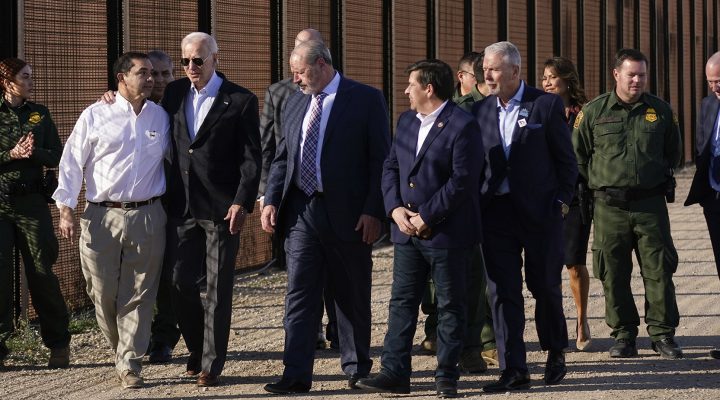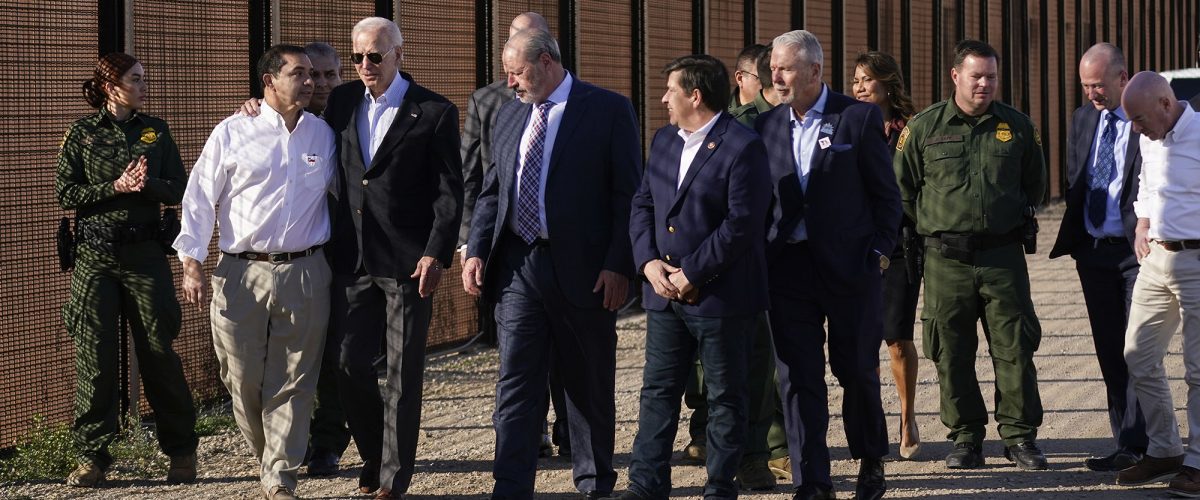U.S. faith-based organizations will be called upon to add or boost volunteer and fundraising efforts for immigrants once new White House immigration policies go into effect, human rights activists said during a recent briefing with journalists.
The Jan. 20 conference call hosted by America’s Voice was convened in response to recently announced Biden administration plans to address security at the southern border.
Immigrant advocates and legal experts participating in the call welcomed some of the president’s ideas, such as a new parole program for certain categories of migrants. But others were roundly condemned, including a proposed reviving of a Trump-era transit ban and a Title 42-esque plan to expel 30,000 asylum seekers a month to Mexico.
Yet all agreed the president’s stopgap policies result from congressional failure to enact the comprehensive immigration reforms that Americans — including a majority of Republicans — have strongly supported in recent polling.

Helena Olea
As a result, faith groups on both sides of the border will be needed to respond to the surge in migrants trapped in Mexico, said Helena Olea, associate director for programs with Alianza Americas, a U.S.-based Latino immigrant organization dedicated to helping migrants in the United States, Cuba and throughout Central America.
“It is important to underscore that religious organizations are already playing a very important role in Mexico managing many of the shelters where people are being received and taken care of,” she said.
Church-run shelters and feeding operations in Mexico have been inundated for years with new arrivals and asylum seekers, including thousands summarily returned to Mexico under the Trump administration’s Title 42 program of rapid expulsions. Those groups have relied heavily on financial support and partnerships with American faith groups and will need much more going forward, Olea said.

Krish O’Mara Vignarajah
The same is true for shelters and other support provided to immigrants in the U.S., said Krish O’Mara Vignarajah, president of Lutheran Immigration and Refugee Service. “On the U.S. side — Texas, Arizona, New Mexico — our border operations hinge on having religious groups participate. Many of our pop-up shelters that serve asylum seekers are based at churches, and we couldn’t do this work without the support of volunteers from congregations.”
Among the most-criticized of Biden’s proposals during the conference call was that of a travel ban, a policy introduced by the Trump administration to deny asylum to migrants who traveled through third nations enroute to the U.S. The rule was challenged by the ACLU and ruled a violation of federal law by the Ninth Circuit Court of Appeals in 2020.

Lee Gelernt
So far, the Biden administration has offered only “vague promises” that its version of the rule would be better than the Trump measure, said Lee Gelernt, deputy director of the ACLU Immigration Rights Project.
“We would go to court immediately” if the Biden administration attempts to implement a travel ban, he said. “Nothing we have heard would keep it from being struck down.”

Dylan Corbett
Dylan Corbett, executive director of the Hope Border Institute, praised the administration for recently expanding the nation’s existing immigrant parole program to include Cubans, Haitians, Nicaraguans and Venezuelans, who are among the leading seekers of asylum in the U.S.
But the administration also negotiated a plan with Mexican authorities to swiftly expel 30,000 asylum seekers a month to Mexico using Title 42, the Trump-era health code provision that has been used to expel 2.5 million immigrants without judicial or administrative hearings.
Corbett, whose El Paso-based faith group serves migrants on both sides of the border, said the arrangement with Mexico is a continuation of the inhumane policies of the Trump administration. “We are seeing expulsions of vulnerable people with credible asylum claims. … The (immigration) situation today looks like it did under the previous administration.”
Requiring immigrants to use a phone-based application to apply for appointments to make asylum claims also was panned by experts during the briefing.
Biden said the CBP One mobile application will reduce illegal border crossings by enabling asylum seekers to apply for immigration appointments in the U.S. while still in Mexico or other nations.
But the app is available only in English and Spanish and not the Creole or indigenous languages spoken by many migrants, O’Mara Vignarajah said.
She also pointed out that migrants often do not have access to cell phones or to Wi-Fi or other networks through which to use them. “Many people don’t have the luxury of waiting” for the online application process to apply for asylum.
O’Mara Vignarajah blasted the travel ban concept and suggested the parole expansion has severe limits, as well. “The baseline misconception is that those in need of humanitarian relief can fly into the U.S. and have sponsors lined up.”
Corbett added that these challenges will bring greater pressures on faith-based groups and communities trying to help migrants trapped on the Mexico side of the border.
“There is a network of shelters that are more-or-less resourced and meeting the need. But there are thousands more people and many can’t access the shelters. … This is an additional burden on the border community to meet the challenge.”
Related articles:
70% of conservatives still want immigration reforms this year, but it’s not likely to happen
Majorities of all Americans want something Congress refuses to do: Meaningful immigration reform now


